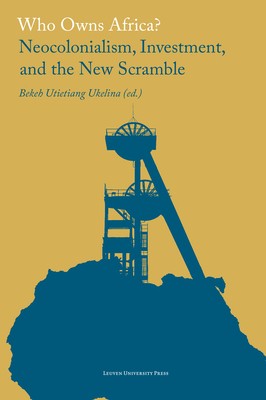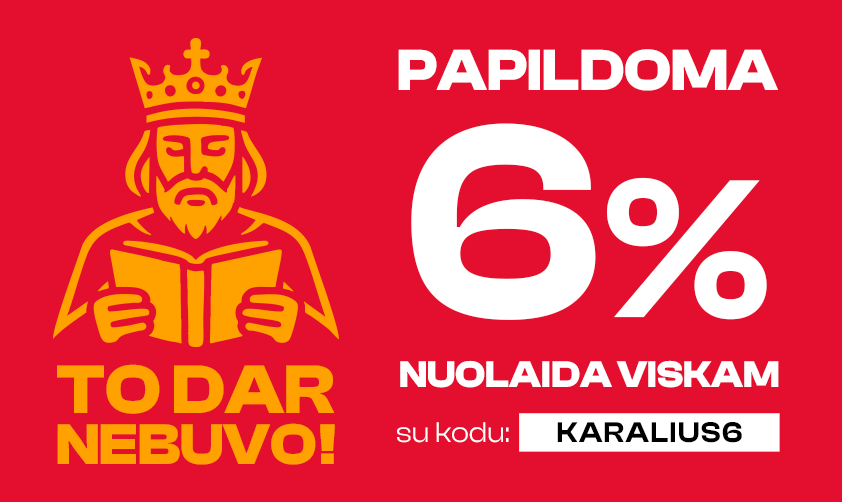
- Išsiųsime per 10–14 d.d.
- Leidėjas: Leuven University Press
- ISBN-10: 9462703434
- ISBN-13: 9789462703438
- Formatas: 15.6 x 23.4 x 1.5 cm, minkšti viršeliai
- Kalba: Anglų
- Extra -15 % nuolaida šiai knygai su kodu: ENG15
Who Owns Africa? + nemokamas atvežimas! | knygos.lt
Atsiliepimai
Aprašymas
The independence of African countries from their European colonizers in the late 1950s and 1960s marked a shift in the continent's political leadership. Nevertheless, the economies of African nations remained tied to those of their former colonies, raising questions of resource control and the sovereignty of these nation-states.
Who Owns Africa? addresses the role of foreign actors in Africa and their competing interests in exploiting the resources of Africa and its people. An interdisciplinary team of scholars, all experts in African studies, examines the concept of colonialism from a historical and socio-political perspective. They show how the language of investment, development aid, mutual interest, or philanthropy is used to cloak the virulent forms of exploitation on the continent, thereby perpetuating a state of neocolonialism that has left many African people poor and in the margins.
Contributors: John K. Marah (State University of New York Brockport), Nene-Lomotey Kuditchar (University of Ghana), Bekeh Utietiang Ukelina (State University of New York Cortland), Tokie Laotan-Brown (Merging Ecologies, Athenry), Asher Lubotzky (Indiana University Bloomington), Seth N. Asumah (State University of New York Cortland), Kudakwashe Chirambwi (National University of Science and Technology, Zimbabwe), Phillip Murray (United States Military Academy West Point), Paul Chiudza Banda (Tarleton State University), Gift Wasambo Kayira (University of Malawi)
EXTRA 15 % nuolaida
Kupono kodas: ENG15
Akcija baigiasi už 1d.22:21:22
Nuolaidos kodas galioja perkant nuo 10 €. Nuolaidos nesumuojamos.

- Leidėjas: Leuven University Press
- ISBN-10: 9462703434
- ISBN-13: 9789462703438
- Formatas: 15.6 x 23.4 x 1.5 cm, minkšti viršeliai
- Kalba: Anglų
The independence of African countries from their European colonizers in the late 1950s and 1960s marked a shift in the continent's political leadership. Nevertheless, the economies of African nations remained tied to those of their former colonies, raising questions of resource control and the sovereignty of these nation-states.
Who Owns Africa? addresses the role of foreign actors in Africa and their competing interests in exploiting the resources of Africa and its people. An interdisciplinary team of scholars, all experts in African studies, examines the concept of colonialism from a historical and socio-political perspective. They show how the language of investment, development aid, mutual interest, or philanthropy is used to cloak the virulent forms of exploitation on the continent, thereby perpetuating a state of neocolonialism that has left many African people poor and in the margins.
Contributors: John K. Marah (State University of New York Brockport), Nene-Lomotey Kuditchar (University of Ghana), Bekeh Utietiang Ukelina (State University of New York Cortland), Tokie Laotan-Brown (Merging Ecologies, Athenry), Asher Lubotzky (Indiana University Bloomington), Seth N. Asumah (State University of New York Cortland), Kudakwashe Chirambwi (National University of Science and Technology, Zimbabwe), Phillip Murray (United States Military Academy West Point), Paul Chiudza Banda (Tarleton State University), Gift Wasambo Kayira (University of Malawi)





Atsiliepimai